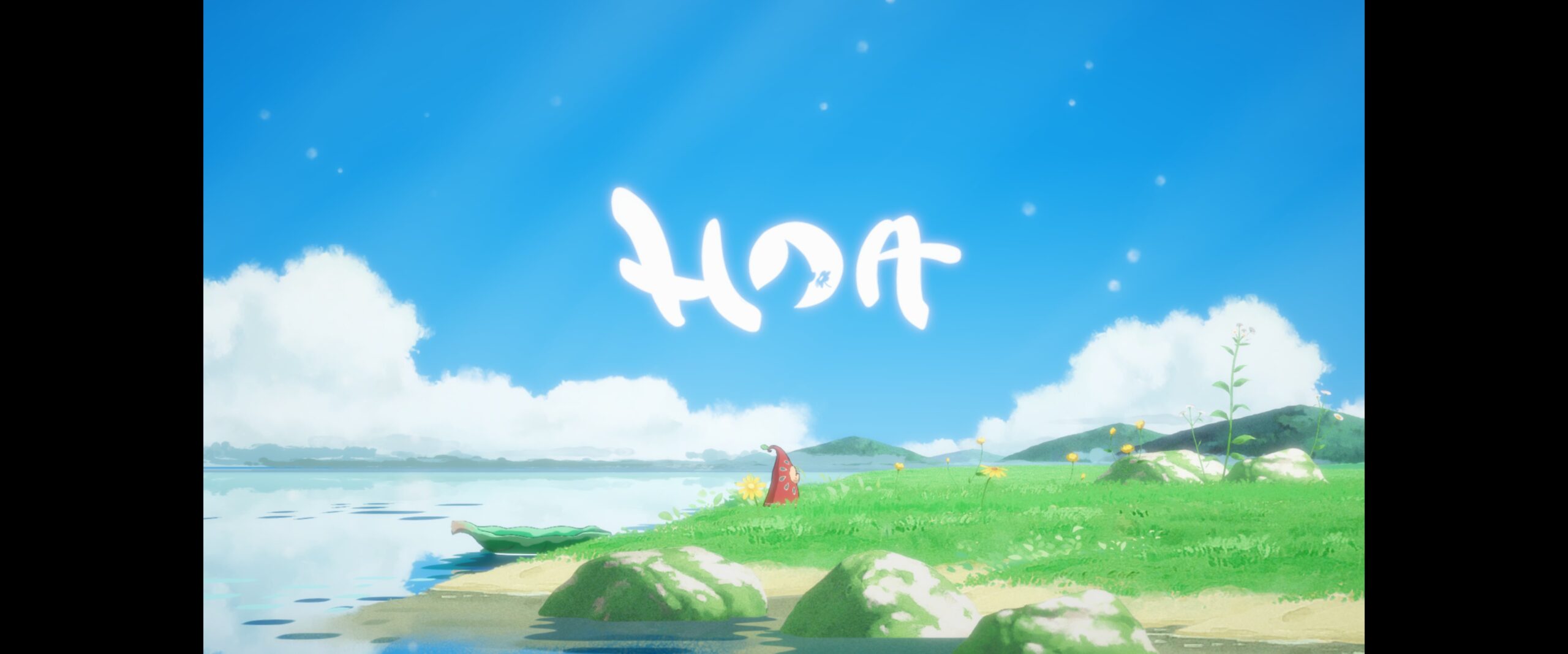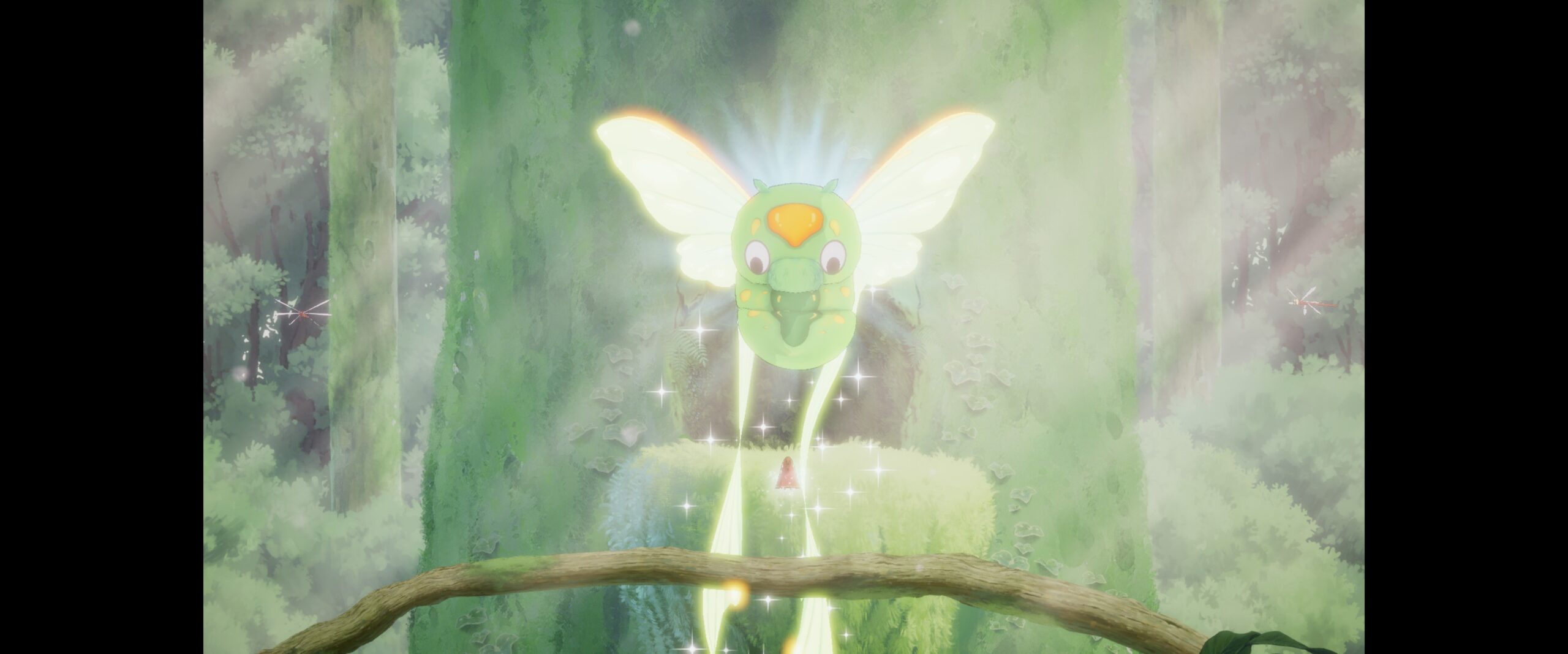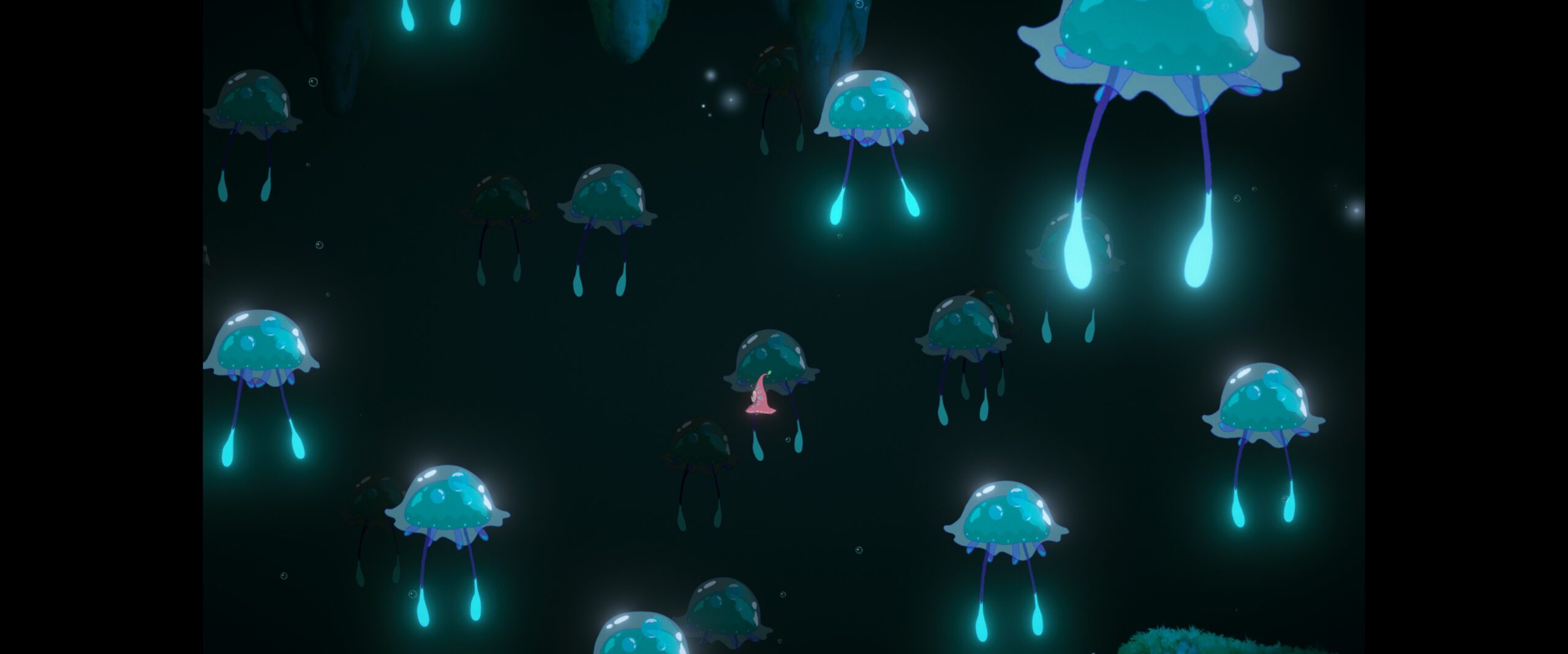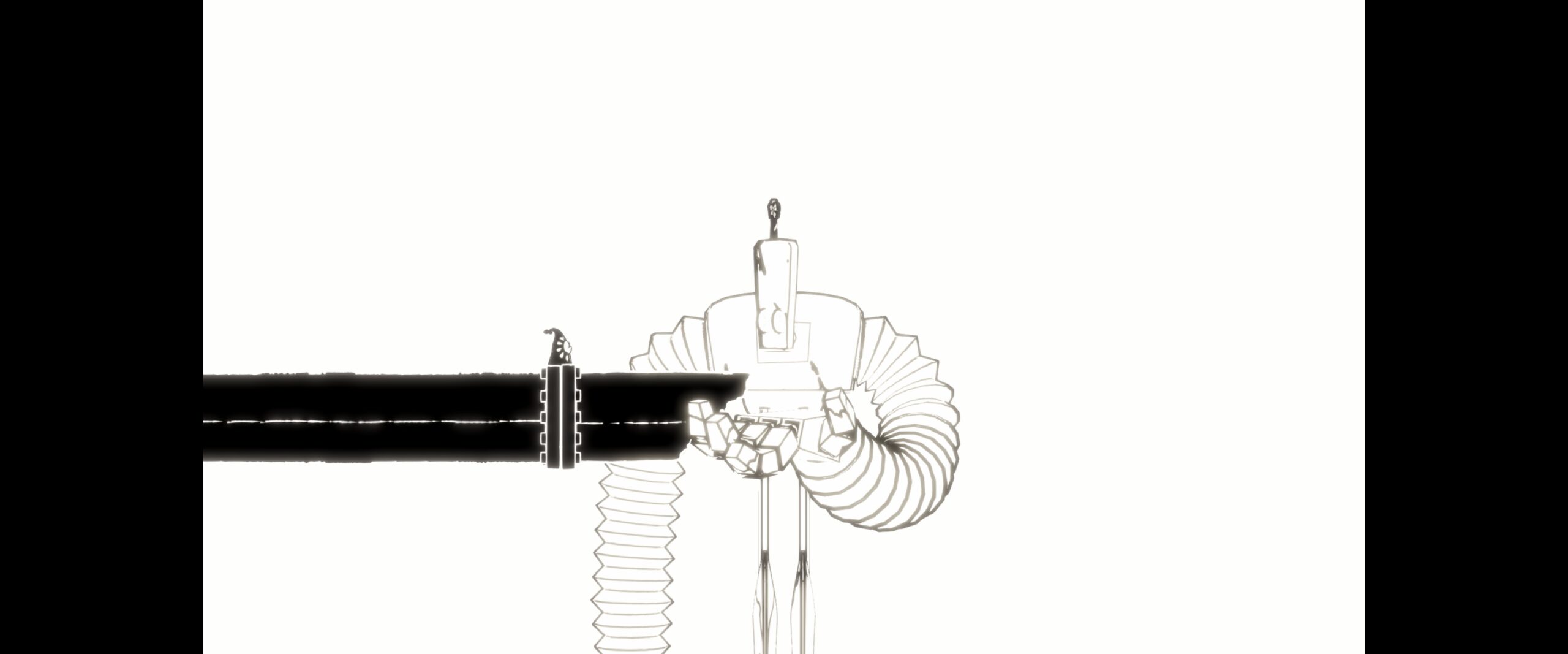Some of the most challenging aspects of crafting a game is doing the things right that won’t get noticed. The minutiae that fades into the background can often be as important as the core aspects of the game and finding the right balance between these things is often a signal of an adept game developer. Unfortunately these are also the things that, when done wrong or poorly, are the things that stand out the most, detracting from the otherwise stellar elements of the game. Such is the tale of Hoa, a beautifully whimsical platformer that unfortunately doesn’t pay attention to some of the more run of the mill elements that ultimately end up making the game more middle of the road than it would otherwise be.

You arrive back home after a time away to an island that seems bereft of life and colour. Your simple touch is enough to bring the world back to life, and you remember the numerous others who had helped you escape the dark fate of this place. This begins your tale of adventure back through the place you once called home, tracing your steps back to the place where it all began.
Hoa is undoubtedly a beautiful game, the characters, environments and background visuals all crafted with a loving hand by the developers. Whilst on the surface it has the feeling of the Flash games of yesteryear, it’s actually a heavily stylized 3D environment, giving the developers access to all the visual tricks and effects that these modern platforms have to offer. Each of the different environment’s colour palates are expertly constructed, aptly conveying the mood the developers wanted to capture. Indeed it was these beautiful visuals and the gorgeous soundtrack that drew me to this initially, although from there is where things start to fall apart.

There’s nothing too crazy or unique about Hoa’s mechanics: it’s a simple 2D platformer. Whilst there are some beginnings of metroidvania elements scattered around the place they’re really only in spirit only as you’ll never be traversing back across a map once you’ve completed it. Indeed the game is decidedly linear, save for a few places where one choice might have you backtrack a little bit in order to cap off the the section before you progress. Indeed Hoa’s overall vision is decidedly limited, likely owing to this being the development team’s first game and their first step into the world of game development.
The puzzles and platform sections aren’t likely to be a challenge for anyone as they’re all straightforward affairs that don’t really push your limits hard at all. The metroidvania elements I mentioned come in the form of new abilities, but they’re only really used in isolation after you’ve been introduced to them. The last sections of the game do combine a couple of the new powers together but that’s about it as every other time you’ll be using your newly given power only and the rest will just sit idle.

This simplicity is also what makes the game’s less than stellar parts come through so strongly. The foley work is, to be frank, atrocious and becomes immediately apparent when your character starts walking around. There’s nothing more grating than hearing the same footsteps a dozen times in a row or sounds that have obviously not been levelled or mixed correctly to match the backing soundtrack or action that’s happening on screen. Worse still, even though the sound track is quite good, it’s haphazardly tied into the on-screen action and the transitions between tracks/sections are quite obvious.
There’s also one section that is honestly quite terrible, and that’s one of the last levels where the controls and player are inverted. It’s not particularly fun or novel, it’s just a chore as you have to either struggle through with reversed controls or swap your keybinds around to get through the section as quickly as you can. To be sure, I understand it from a narrative perspective, but it was honestly just a chore to get through and not something I’d want to see repeated in a game again.
Then there’s the story which is barely there. You’re really not given much of an introduction, you just arrive on an island, and the various characters along the way will only give you a couple lines of dialogue at best. I’ve played numerous games with low to no dialogue in them, so this isn’t a storytelling method I’m unfamiliar with, but Hoa’s narrative is so thin on the ground it makes it hard to really empathise with…well anything happening in it. I’m sure part of the challenge here is that some of it is lost in translation, as well as me not having a great understanding of Vietnamese culture in general, but even with those things taken into consideration there’s not enough other storytelling done in order to carry this game through it’s short play time.

All this being said though as a first step into the world of game development Hoa is a good entry, focusing in on the things that they know they can do well whilst leaving other parts at the door. It’s unfortunate that the games better elements, the visuals and the soundtrack, are unfortunately let down by it’s simplicity in others but these are mistakes that first time developers often make. What this means for Skrollcat Studio is that there’s a lot of room for growth here, one that I hope can be fuelled by the moderate level of success they seem to have garnered here.
Rating: 7.0/10
Hoa is available on PC, PlayStation 4 and Nintendo Switch right now for $21.50. Game was played on the PC with a total play time of 2.2 hours and 100% of the achievements unlocked.



